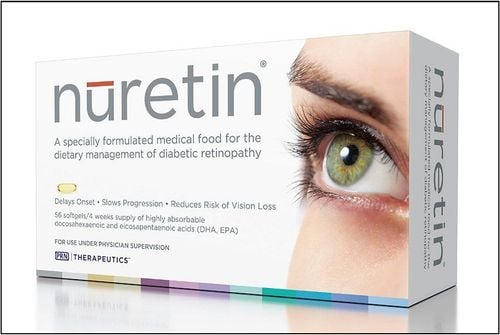This is an automatically translated article.
Between the stress of work at work, and being away from home, meal time at work is the only time to rest. A study published in the American Journal of Preventive Medicine found that snacking, overeating, or eating unhealthy foods at work can put you at risk for diabetes and other health problems. heart problems than other employees who choose healthier foods. The article will help you better understand bad eating habits at work
1. Does the workplace facilitate bad eating habits?
An editorial published in 2011 argued that unhealthy eating such as snacking, overeating, overeating, etc. could be considered a new form of occupational hazard in a new way. legal. Although the authors mainly deal with night shift workers, the workplace has been known to complicate our relationship with food.
The most recent data from the Behavioral Risk Factor Monitoring System (BRFSS) shows that “the prevalence of adult obesity currently exceeds 35% in seven states, 30% in 29 states and 25% in 48 states”. The U.S. Department of Agriculture has found that nearly 1,000 calories per day are attributed to workers' added fats and sweeteners, while dairy, fruits and vegetables contribute only about 424 calories. And an analysis of grocery purchases in the United States found that highly processed foods account for more than 60% of the calories in food people buy.
At the same time, the health economy is growing and according to the Institute of Global Health, the healthy eating, nutrition and weight loss sector is valued at 702 billion USD. This means that people are concerned and concerned about the food they eat or at least they are becoming more conscious of their dietary choices. If you search online for nutrition and diet trends, there's no shortage of options available to us: Intermittent fasting, the keto diet, the oil-free diet, intuitive eating, translation. healthy food delivery service, the list goes on. Technology is also making it easier than ever for people to keep track of what they eat and when they eat. This also makes it easier for people to access healthier food options.
Then the problem isn't really the lack of healthy options. The problem is that it's hard to make healthy choices when we're surrounded by unhealthy choices. The workplace is a prime example of this.

Thói quen ăn vặt ở nơi làm việc đang ngày càng trở nên phổ biến
2. The relationship between the workplace and the habit of snacking, overeating
The workplace is often filled with easily digestible foods: Donuts, cookies, chips, candy, chocolate, cakes, cupcakes, ... These are foods high in fat, sugar, salt and often they are hard to resist. Even the most disciplined people sometimes find it hard to resist the temptation from these foods.
Food brings people together, so it's natural for companies to use food as a way to foster interaction and promote company culture. It's a great initiative, not only because it ties people together, but also because it forces people to wake up and rest during the day (short breaks are necessary to prevent burnout and reduce stress and anxiety).
However, the continued temptation of easy-to-breathe foods in the workplace makes it harder for people to make healthy choices, especially for those who are struggling to make dietary choices and save money. Pay attention to their eating habits.
It's easy to avoid chocolate when there's no chocolate around. It's a completely different story when it's in our sight for a long time or if you see other people enjoying it. Furthermore, stress complicates our relationship with food at work, known as stress eating habits. Research has shown that stress makes us crave more delicious foods (fatty, fried, sugary) and most people eat more when they feel stressed. Why? Some psychologists suggest that we stress eat to take control of situations, redirect the source of stress, and achieve a sense of well-being.
3. Bad eating habits at work? Get back in shape in 5 steps
For many people, maintaining healthy eating habits at work can seem overwhelming. Regardless of the reason, due to work pressure or not allowing time, maintaining a healthy diet is a concept that is difficult to find in office workers.

Để từ bỏ thói quen ăn uống không lành mạnh: ăn nhiều, ăn quá no... nơi công sở không phải điều dễ dàng
A big picture has been drawn by studies: Adults spend an average of 8.8 hours per day on work and work-related activities. And a survey found that 65% of adult workers are overweight or obese. However, studies also show that making simple changes to their work environment and daily routine can improve the quality of their diet and help these workers maintain their lifestyle. healthier. Here are five steps you can take to change bad eating habits at work:
Limit candy and add fruit to your workplace diet. Getting candies out of your mind by removing them from sight can be effective. Simply moving a packet or plate of candy away from your desk or storing it in a drawer, has been shown to significantly reduce sweets consumption. Conversely, a prominent fruit bowl will encourage healthy snacking. Beware of vending machines: Studies have confirmed something most of us know intuitively: Vending machines primarily dispense snacks high in sugar, salt, calories, and calories. little nutritional value. However, even when we feel hungry, we should limit our use of foods from these vending machines Plan ahead: Bring healthy snacks from home. Control snacking by bringing healthy foods from home. For items stored in the desk drawer, consider pre-allocated nuts, dried fruit, and granola bars. Refrigerator snacks can include yogurt, raw veggies, fresh fruit, and shredded cheese - all of which are healthier alternatives to cookies or other snacks. Stop eating alone. at the desk: Having dinner at the desk has become a habit of American workers. Studies have shown that eating out with coworkers can increase both cooperative behavior and overall work performance - which is mutually beneficial. Another possible alternative is to go outside for a walk. It will give us less time to consume a big meal, improve our mood and can actually make us feel better Drink lots of water: Even mild dehydration can affect us. adversely affect each person's memory, while increasing anxiety and fatigue, creating a premise for reduced work performance and increased desire to snack. Always keep a water bottle with you at all times. Drinking water instead of a can of sugary soda can help reduce calorie intake by up to 250 calories. Unhealthy eating at work seems to have become a common practice for many of us. However, this habit is not too difficult to give up. Applying the 5 steps we outlined above can help you form good eating habits at work.
While some companies are trying to provide nutritious choices, others may offer free foods with prepackaged takeout that may do more harm than good. In fact, the multitude of free snacks can be a perk for office workers and much appreciated. In the workplace, research suggests ways that companies can help employees eat healthy at work by offering more fruits, vegetables, whole grains, and fewer snack options. more processed.
If you have any questions related to the topic of nutrition for the body that need advice from a doctor, you can leave your question in the ASK VINMEC DOCTOR section directly on the hospital website. Your question will be sent to the doctor and you will receive a consultation as soon as possible!
Please dial HOTLINE for more information or register for an appointment HERE. Download MyVinmec app to make appointments faster and to manage your bookings easily.
References: mayoclinic.org, allwork.space, flexjobs.com













